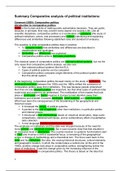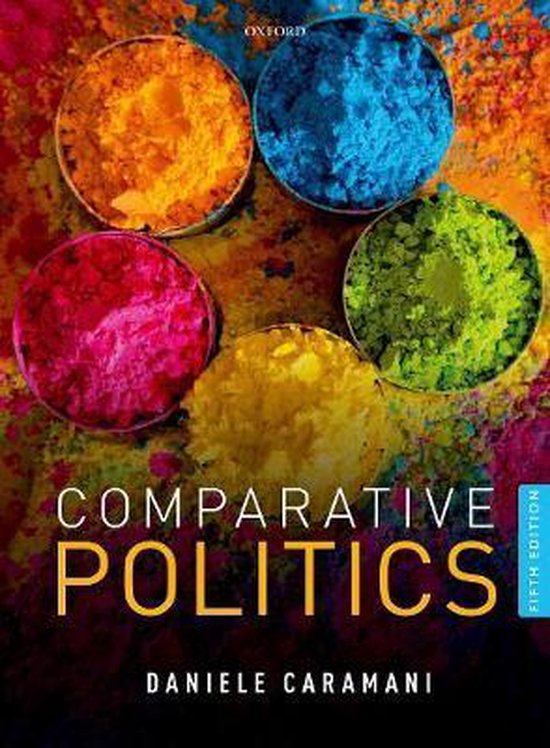Samenvatting
Samenvatting Comparative Analysis of Political Institutions
- Instelling
- Universiteit Utrecht (UU)
- Boek
- Comparative Politics
Samenvatting voor het vak Comparative Analysis of Political Institutions. Vak voor de Bachelor bestuurs- en organisatiewetenschap 2e jaar. Samenvatting van het boek Comparative Politics van Daniele Caramani.
[Meer zien]





